Ikeji Festival 2024: Celebrating Unity, Ancestors, and Sustenance
The Ikeji Festival, which takes place around March or April each year, is a celebration of gratitude, joy, and propitiation of the people of Arondizuogu town in Imo State. The festival is an elaborate celebration of history and culture, with dazzling masquerade performances, captivating sights and mesmerizing dances performed by various dance groups. Ikeji Festival boasts of having the largest masquerade procession in the whole of West Africa. The festival which started out as a ritual to signify the start of the harvest season and the conclusion of the planting season has been celebrated for the past 500 years. The event is called the “out-izu uka” celebration, lasting four market days, or one week in the contemporary calendar. Every one of four market days (Eke, Orie, Afor, and Nkwo) has a unique meaning and symbolizes a different facet of the Ikeji celebration.
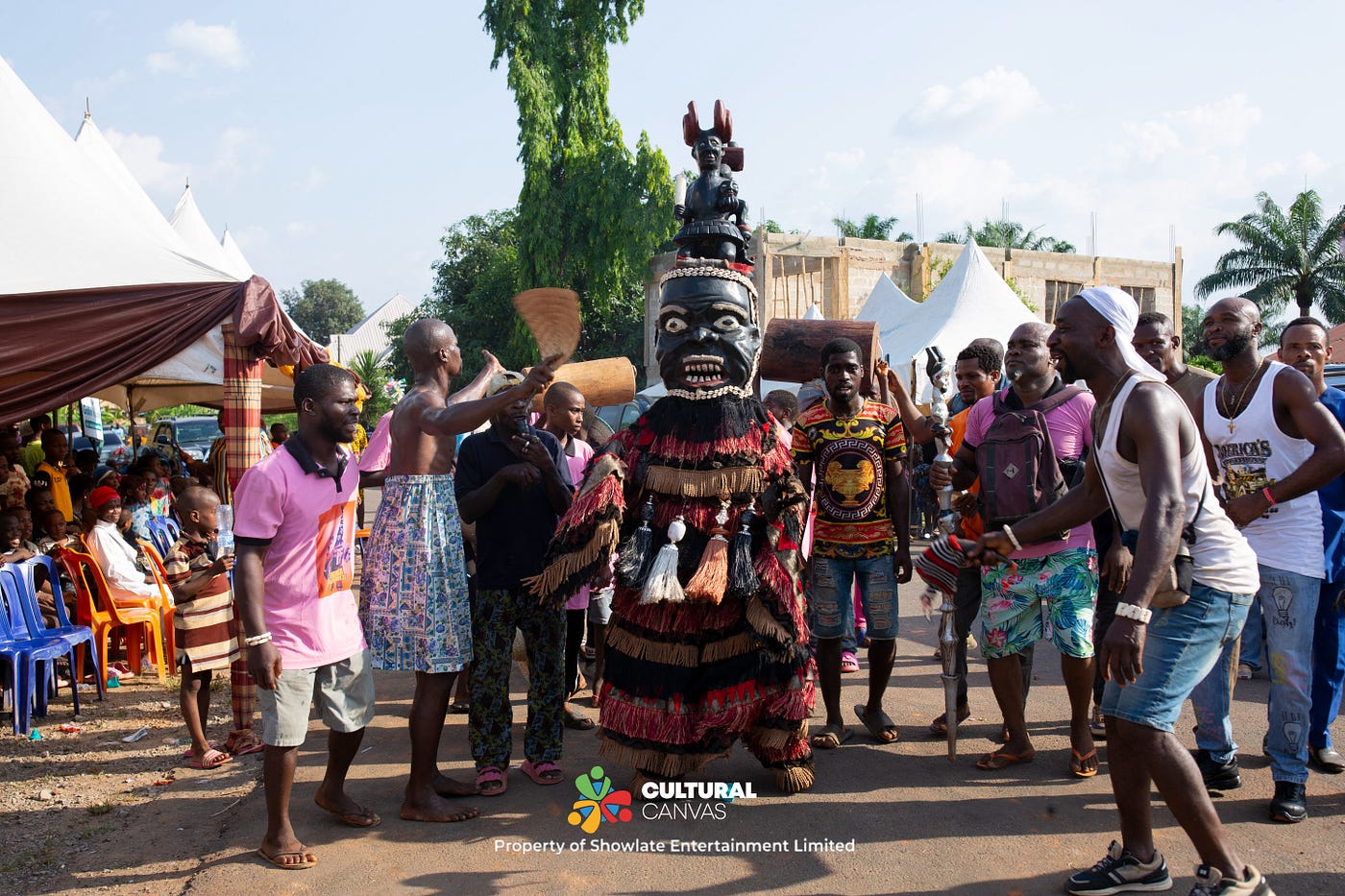
Brief History of Arondizuogu
The Ikeji festival has been celebrated for a long time. It can be slightly compared with the American Thanksgiving celebrations in the US which is based on the history of America. In the same fashion, the Ikeji festival has deep roots that is connected to how Arondizuigu town came life.
Arondizuogu, situated in Imo State, Nigeria, spans across three local government areas: Okigwe, Ideato North, and Onuimo, with the largest area in Umualoma (formerly Isiokpu). Established in the middle of the 14th century, the town is bordered by Akokwa to the north, Omuobum to the south, and Umualoma in Anambra State to the east. The area comprises twenty towns and ten autonomous communities, predominantly settled by migrants.
The acquisition of Umualoma land by the Arondizuogu is debated: some say it was through negotiation, others through deceit, and some through guerrilla warfare and massacre. Historically known for their warfare prowess and involvement in the slave trade, the Arondizuogu were founded in the mid-18th century by two key figures: Mazi Izuogu Mgbokpo, a powerful slave merchant from Arochukwu, and Chief Iheme from present-day Anambra State. They fought against and overtook the people of Umualoma, establishing control over the region after defeating both the local inhabitants and British colonial forces.
The union of Izuogu and Iheme led to the formation of the Aro kingdom of Arondizuogu, one of the largest states in the Aro Confederacy. Today, Arondizuogu remains the largest former Aro colony, predominantly inhabited by immigrants. The patriarch of the host community, Ezerioha Udensi of Obiokwara, Obinihu, and Umualaoma (i.e., Isuokpu), put an end to the majority of the conflicts over Arondizuogo. After determining that the Arondizuogu people could no longer return to Aro Chukwu, he organized the peaceful distribution or donation of lands to the people of Arondizuogu.
Within Arondizuogu, the Izuogu clan holds seniority over the Iheme clan, with Awa and Uche being the most senior. In the early 19th century, Mazi Okoli Idozuka, an immigrant warrior, expanded Arondizuogu’s boundaries through aggressive raids. Despite his ruthlessness as a slave trader, Idozuka was a notable leader, and his son, Nwankwo Okoro, succeeded him in the slave trade. Okoro’s influence earned him the position of Warrant Chief under the British, tasked with tax collection and maintaining order.
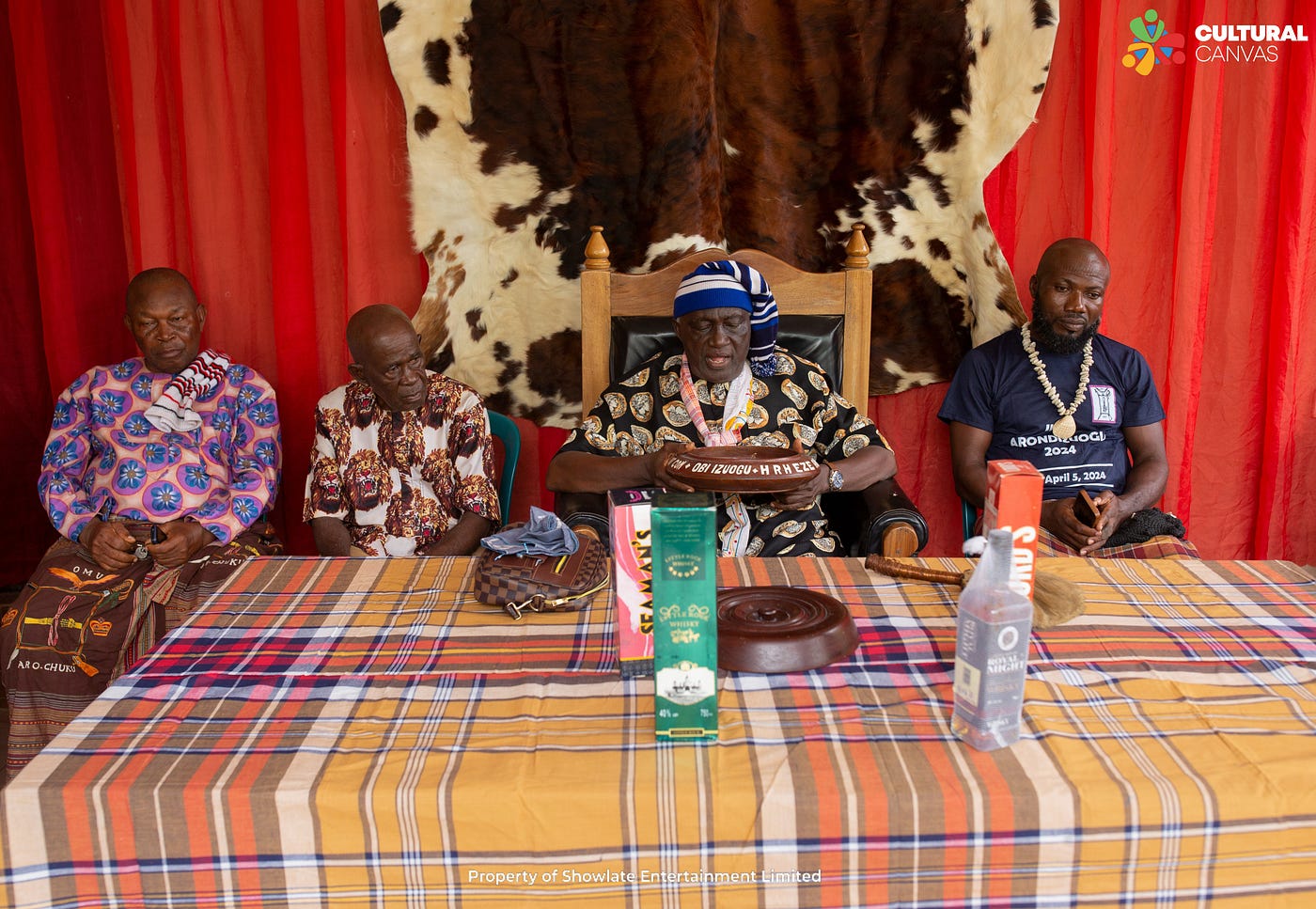
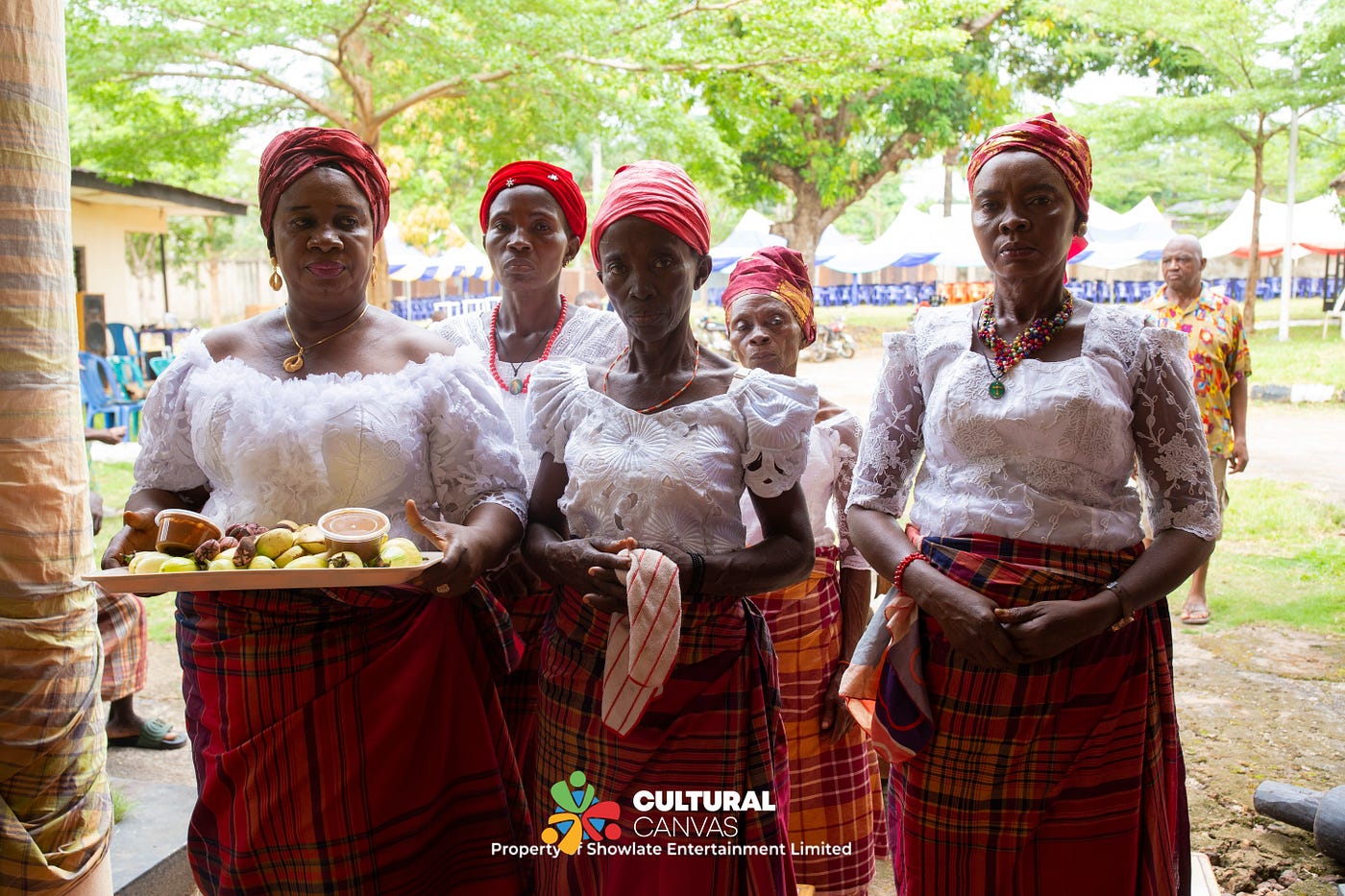
Origin(s) of the Ikeji Festival
Generally, the people of Arondizuogu have been celebrating the Ikeji Festival since the 16th century to appreciate the gods and their ancestors for the harvest of new yams. However, there are different accounts of how the festival originated to become a significant part of Igbo culture. One source claimed that Ikeji Festival began with Dikeji, a warrior from Arochukwu, who conquered Ujalli and was promised an annual ceremony by the local king, Eze Nwaka. When the king later stopped the tribute and celebration, Dikeji retaliated by killing him and celebrating his defeat in Arochukwu as “Ikeji Ugwo,” which later shortened to “Ikeji Festival” as it spread to Aro colonies including Arondizuogu.
A different source suggests that Izuogu, the founder of Arondizuogu, was kidnapped on a journey and, lacking his protective palm frond (“Omu”), referred to his power as “Ike-jim-Aga Mba” (the power that guides him safely). He was rescued by masked figures from Abam, and the festival “Ike Jim Aga” evolved into the Ikeji Festival. Another account attributes the festival to the Aro’s protection during slave trade, symbolized by the “Omu.” An Aro could only travel safely with this symbol, and those who were captured were remembered in the festival “Aka Ike Jim,” which eventually became known as Ikeji.
Overall, Ikeji is primarily a New Yam Festival celebration. The term “Ikeji” refers to the traditional practice of tying yams on stakes in the barn, aligning with the festival’s focus on yam. This is significant as it connects Ikeji to the relationship between Izuogu and his chief servant, Iheme. Annually, Iheme and other servants would work on Izuogu’s yam farm, performing the “Ikeji” task of tying yams. This tradition has evolved but still underpins the contemporary Ikeji Festival.
Today, the Ikeji Festival is celebrated across Igboland, particularly in Arochukwu, Arondizuogu, and Aro Ajalli, reflecting its deep cultural significance and historical roots.
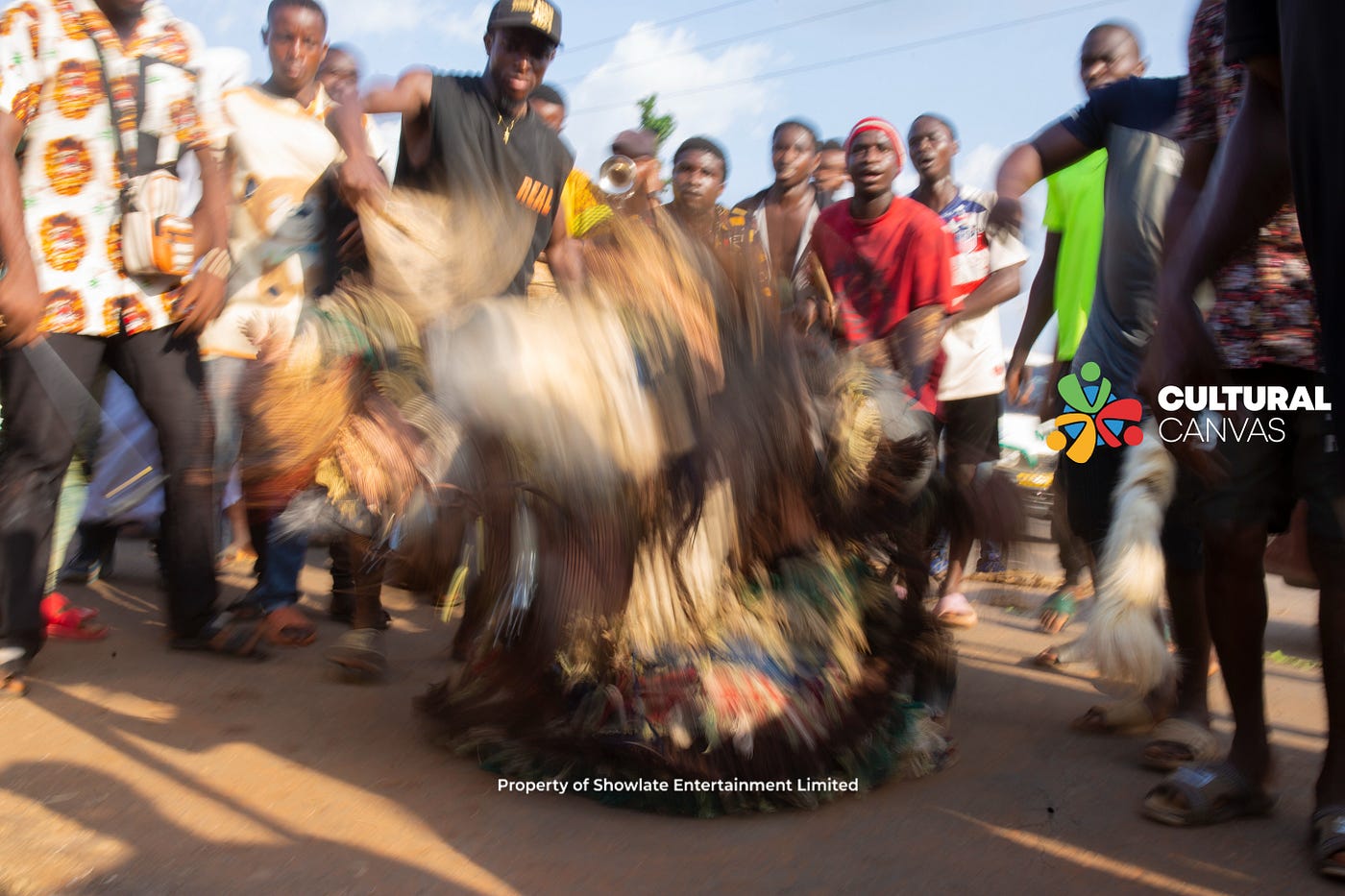
Celebration of the Ikeji Festival
The Ikeji Festival in Arondizuogu, celebrated each April alongside Easter, unfolds over four days:
- Eke Market Day: The festival preparations begin with Eke market day, a significant trading day for Arondizuogu residents. On this day, indigenes purchase food and items for sacrifices, with the market being vibrant and bustling. It is believed that the items sold are provided by ancestors.
- Orie: The day following Eke, which is Orie, is dedicated to family and community sacrifices. People offer thanks and seek blessings and protection from their ancestors in anticipation of the festival.
- Afor Day: The main celebration occurs on Afor. Families showcase their culinary skills, preparing a variety of foods. The day is marked by feasting and drinking. Masquerades from across the villages gather at the village square to perform. The masquerades present at the festival usually include:
- Mgbadike: Father of the masked spirit
- Aburuja: Mother of the masked spirit
- Ojionu: Their son These masquerades are accompanied by a flute player (Onye Oja) who conveys spiritual messages, and a praise singer known as Okwo mkpokpo.
4. Nkwo Market Day: The festival continues on Nkwo, with activities centered at Nkwo-Achi, the central venue. The masquerades display their powers and test the efficacy of charms. A highlight of the festival is the contest involving a ram tied to a post with a tiny string. This is called “Ito-Ebule”, which translates to “Untying of the ram”. Participants, including masquerades, attempt to untie the ram, with success requiring significant charm power. The winner takes the ram home as a prize. This was usually won by singer-songwriter and former traditional prime minister of Arondizuogu, the late Pericoma Okoye who until his death was known as Mezuo Mbụ nke Arọndizuogu (‘first of Arondizuogu’) and Arụsị Makaja Mbụ (‘first Makaji Arusi’) or Arusi Makaja 1. He also featured alongside the legendary Nollywood actor, Pete Edochie in a movie titled Lion of Africa, where the Ikeji festival was depicted.
The Ikeji Festival is a vibrant celebration of Arondizuogu’s culture, showcasing both traditional performances and community spirit.
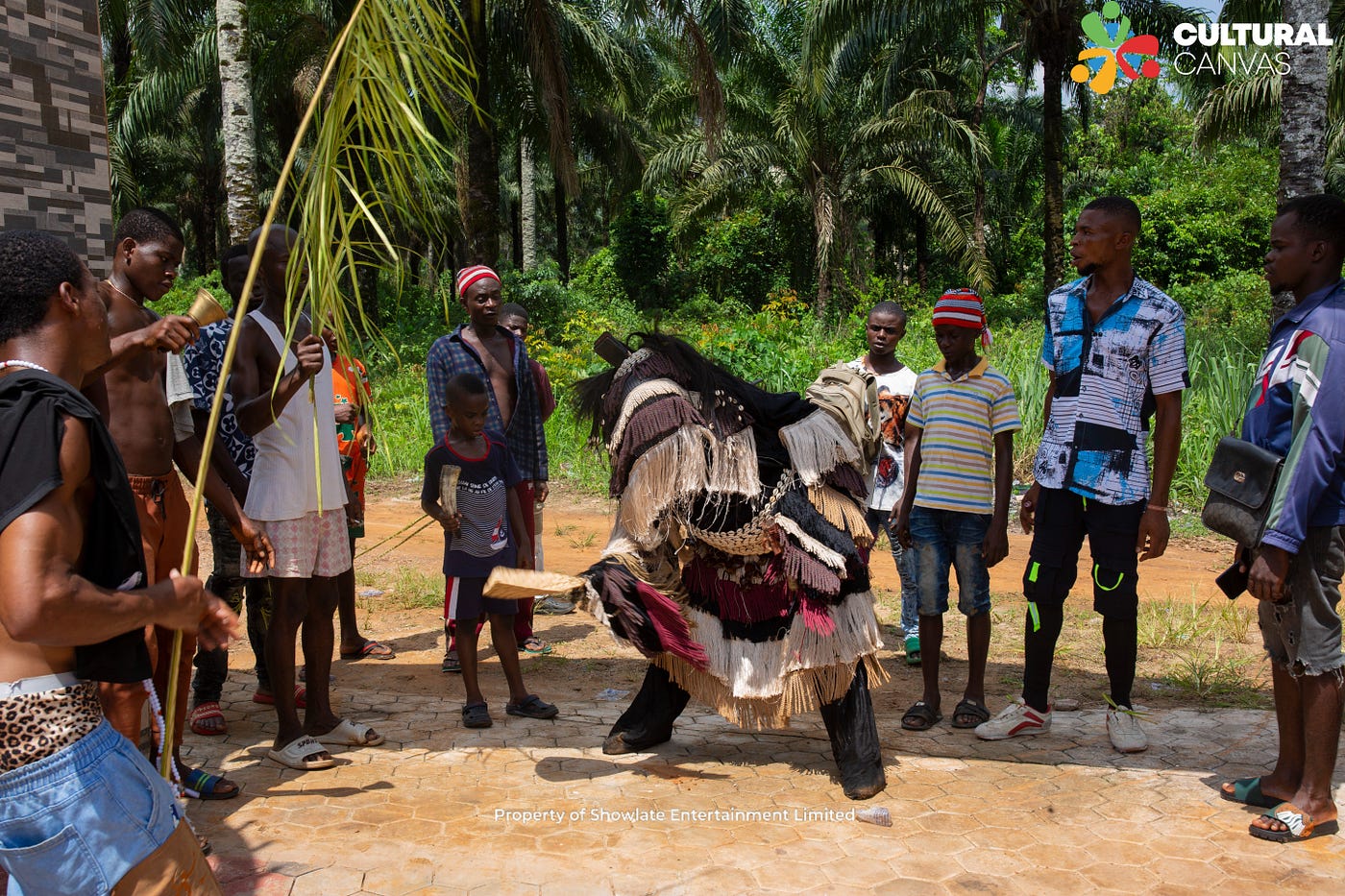
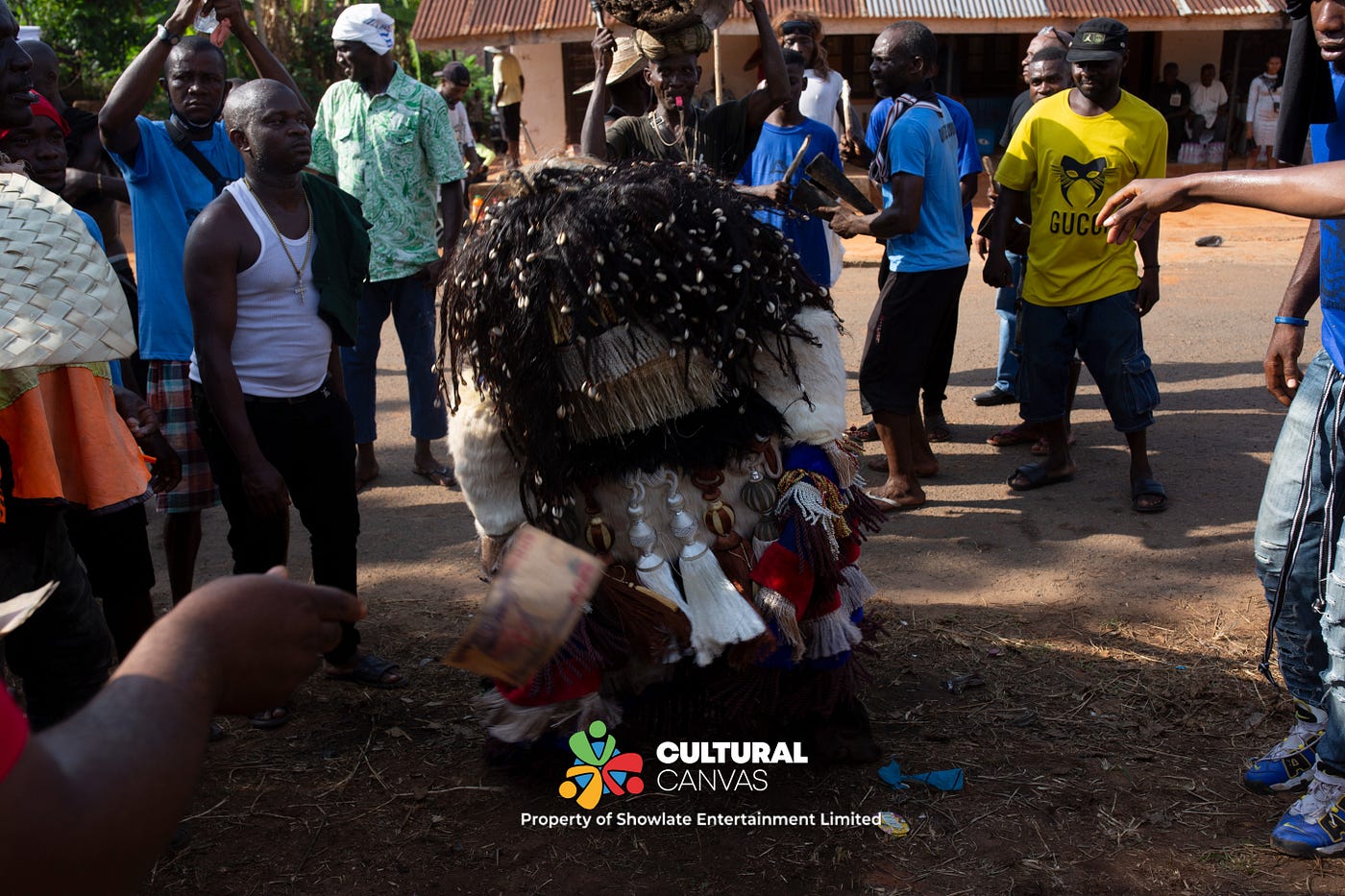
The 2024 Ikeji Festival Celebrations
The 2024 Ikeji Festival of Iheme Izuogu, Imo State, began on April 8th with Eke Market Day, also known as Eke Odu Ikeji. The festival’s main events took place on April 9th, Orie Market Day, which was celebrated as Orie Egbugbu and marked the official start of the festival and Ibu Ihu. April 10th featured Awo or Afor Oso Nmonwu carnival exhibition, followed by Nkwo Oso Nmonwu carnival exhibition on April 11th. The festival concluded with the grand finale and carnival exhibition on April 12th, Eke Oso Nmonwu.
The Principal Akajiofo of Iheme Izuogu and the Eze in Council endorsed the festival’s schedule and urged attendees to adhere to the rules and regulations. ASAM members were present to enforce these rules and sanction any violators. The Chief Press Secretary extended well wishes for safe travels to those who attended the festival.
Highlights of the festival included the vibrant participation of both Iheme and Izuogu communities, showcasing a spirit of unity and tolerance. The celebration featured traditional rites and masquerade performances, culminating in a grand display of cultural and social integration.
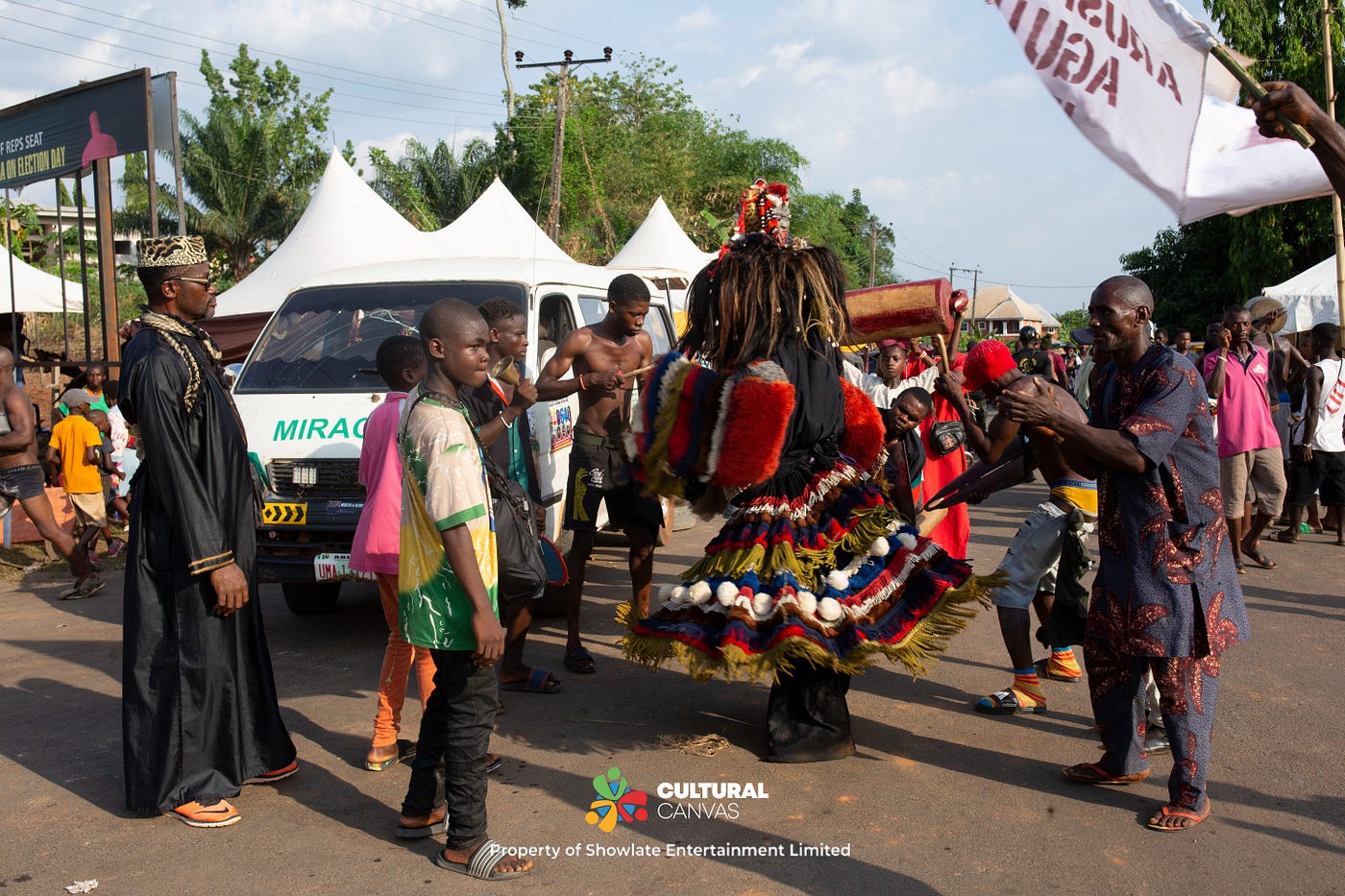
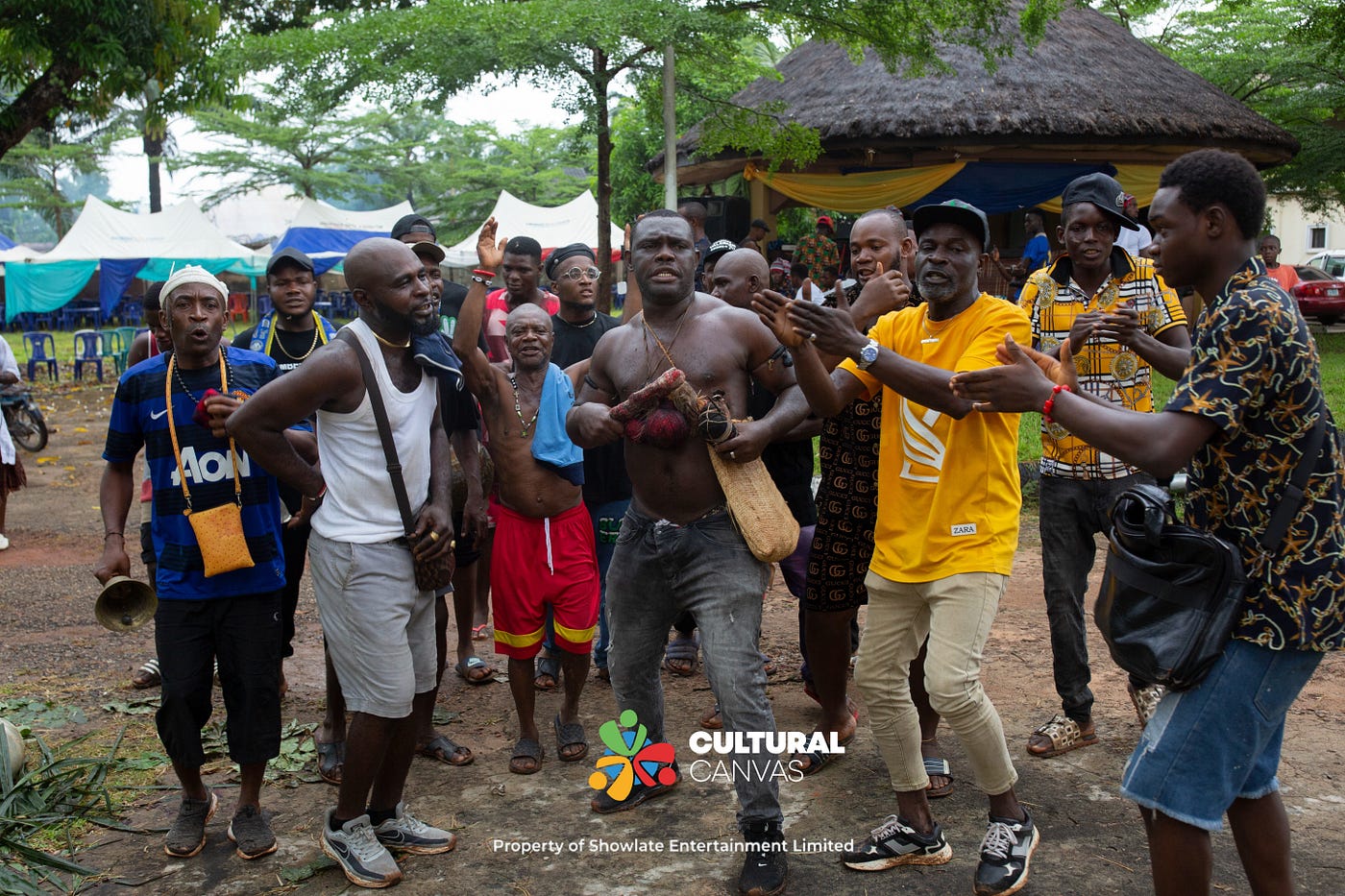
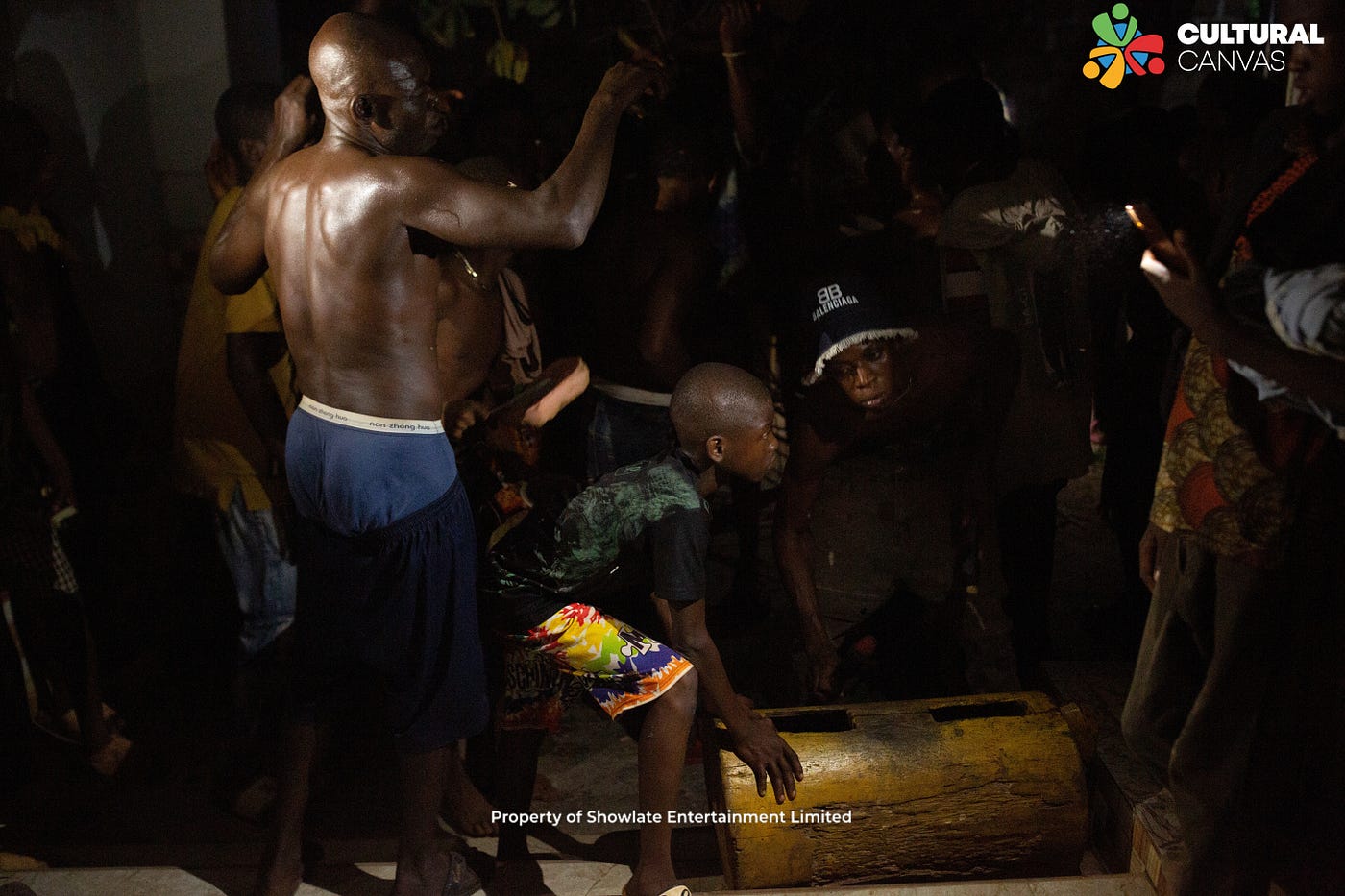
Significance of the festival
The Ikeji Festival holds significant value for the Arondizuogu people and the Ndi Igbo generally in several ways. Firstly, the festival reinforces the Igbo value of community and connectedness. It brings together family members and neighbors, fostering a sense of unity and collective identity. This sense of brotherhood is crucial in Igbo culture, where communal relationships are deeply cherished and celebrated as in the case of Izuogu and Iheme communities. Secondly, Ikeji festival give the people of Arondizuogu the opportunity to celebrate, honor and remember ancestors through sacrifices and libations. This act underscores the Igbo belief in the ongoing relationship between the living and the dead. Ancestors are seen as moral guides and guardians of the land, and honoring them during the festival reinforces the cultural practice of maintaining a connection with the past.
Lastly, the festival highlights the importance of yam, which symbolizes life and sustenance in Igbo culture. The celebration of new yam at Ikeji represents more than just a crop; it signifies a deeper cosmological relationship between humans, the earth, and the divine. The festival embodies the Igbo people’s belief in the divine supply of sustenance and life itself.

